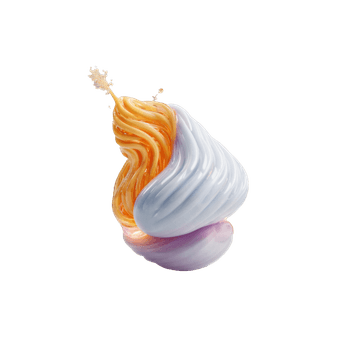Quick version
Changed levels of estrogen and progesterone affect the brain's neurotransmitters, which in turn can lead to depression, stress sensitivity and sleep problems. Since these symptoms are easy to mistake for normal life stress, it is common to not connect them to hormonal changes.
Estrogen often drops in uneven waves and affects serotonin, among other things, while progesterone decreases more steadily and affects sleep and calmness. At the same time, FSH levels rise, which can be an early sign that the body is entering menopause. By testing your hormone levels, you can get a clearer picture of what is happening in your body.
The period before menopause is called premenopause, sometimes also called perimenopause, during this period the hormonal balance begins to change. This period can be long and last several years before twelve months have passed since your last menstrual period and you are then in menopause. What happens in the body is that the sex hormones estrogen and progesterone decrease, this is something that affects both the body and the psyche.
Common symptoms in premenopause that can be good to know:
- Irregular periods
- Hot flashes
- Sleep problems
- Irritability
- Anxiety and depression
- Decreased sex drive
- Fatigue
Why can you experience anxiety during premenopause?
Anxiety during premenopause is largely due to hormonal fluctuations due to reduced levels of estrogen and progesterone. Above all, estrogen has a direct impact on the brain and regulated levels of neurotransmitters such as serotonin and dopamine – substances that control our mood and well-being.
The impact of hormones:
- Reduced estrogen contributes to lower serotonin levels, which in turn increases the risk of anxiety and depression.
- Irregular progesterone disrupts sleep and increases stress sensitivity.
- Increased cortisol sensitivity which makes the body perceive stress more strongly than before.
Physical symptoms such as heart palpitations, sweating and lack of sleep can also trigger feelings of anxiety, especially if they occur unexpectedly.
Easy to miss – “it’s probably just stress”
Many women interpret their symptoms as them “having too much right now” – work, family, the children, the relationship. And of course, the life puzzle in the 35s, 40s and 50s is often stressful. But it is also easy to overlook that the increased anxiety or irritation may actually have hormonal causes and instead think:
"Maybe I just need a vacation."
"Of course I'm tired, the kids don't sleep well."
"I've always been a bit sensitive - it's nothing."
But with increased anxiety and when it becomes part of everyday life or when the reactions feel disproportionate - then it may be premenopause that is haunting you. By knowing this, you can get the right help faster and avoid believing that it is "you" or your lifestyle that is the problem.
What does anxiety feel like in perimenopause?
Anxiety in this phase can take many forms. Some people experience constant worry, while others experience sudden panic attacks. It can be difficult to get started or complete tasks at work that you have never had any problems with before. It can feel scary, especially if you have never had anxiety before.
Common signs of anxiety:
- Inner worry or restlessness
- Difficulty relaxing
- Heart palpitations or shortness of breath
- Difficulty concentrating
- Catastrophic thoughts
- Feeling of unreality or "losing control"
What can you do about anxiety?
There is help available - both in the form of lifestyle changes, talk therapy and medical treatment.
1. Seek treatment in timeIf you feel that anxiety is affecting your everyday life or sleep, it is very important that you talk to a doctor. It may be a hormonal imbalance that can be treated with hormone replacement.
2. Hormone replacement therapy (HRT)Hormone replacement therapy can reduce both physical and psychological menopausal symptoms. This is a scientifically proven method that often provides rapid results for severe problems. Many women who receive help with this experience that they get their life back and can begin to recognize themselves in their old state of mind.
3. CBT – Cognitive Behavioral TherapyTalk therapy, especially CBT, is effective against both anxiety and depression. It provides tools for managing thought patterns and bodily reactions.
4. Lifestyle and self-care- Exercise regularly – preferably outdoors
- Prioritize sleep and rest
- Avoid caffeine and alcohol in large quantities as foods can have an extra negative effect on how you feel
- Try relaxation techniques such as breathing exercises, yoga or meditation
Some women find relief with supplements such as magnesium, B vitamins, or adaptogenic herbs (such as rosehip). Get your values checked and consult a healthcare professional before starting.
Tip: Test your hormone levels
Do you suspect that you are in premenopause? With a simple hormone test for women, you can get answers to what your levels of estrogen and progesterone – and also FSH and LH – look like. This will help you and your doctor understand where you are in the transition and choose the right treatment.
During premenopause, FSH often begins to rise, while LH changes more slowly. As the egg reserve decreases, FSH increases in an attempt to stimulate ovulation. High levels of FSH can therefore be an early sign of the transition to menopause.
At the same time, estrogen begins to decline – but often in uneven waves. This can cause sudden mood swings, hot flashes and affect the brain's neurotransmitters such as serotonin. Progesterone, which has a calming and stabilizing effect, often declines even earlier and more continuously. This can contribute to sleep problems, anxiety and irritability.
By testing your hormones, you get a clearer picture of what's going on in your body – and can stop wondering if it's "just stress".
























